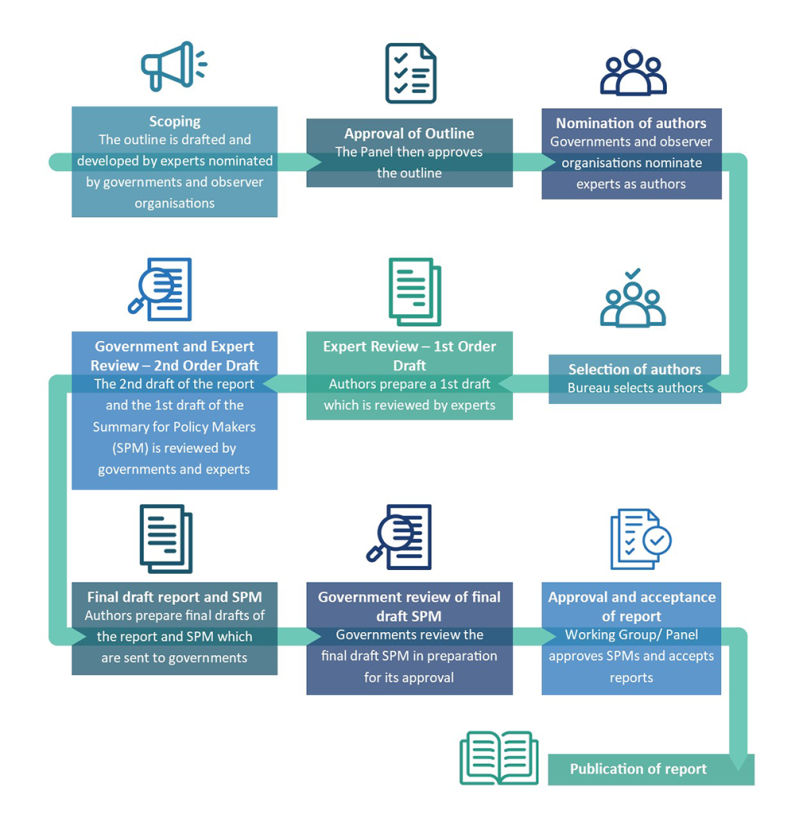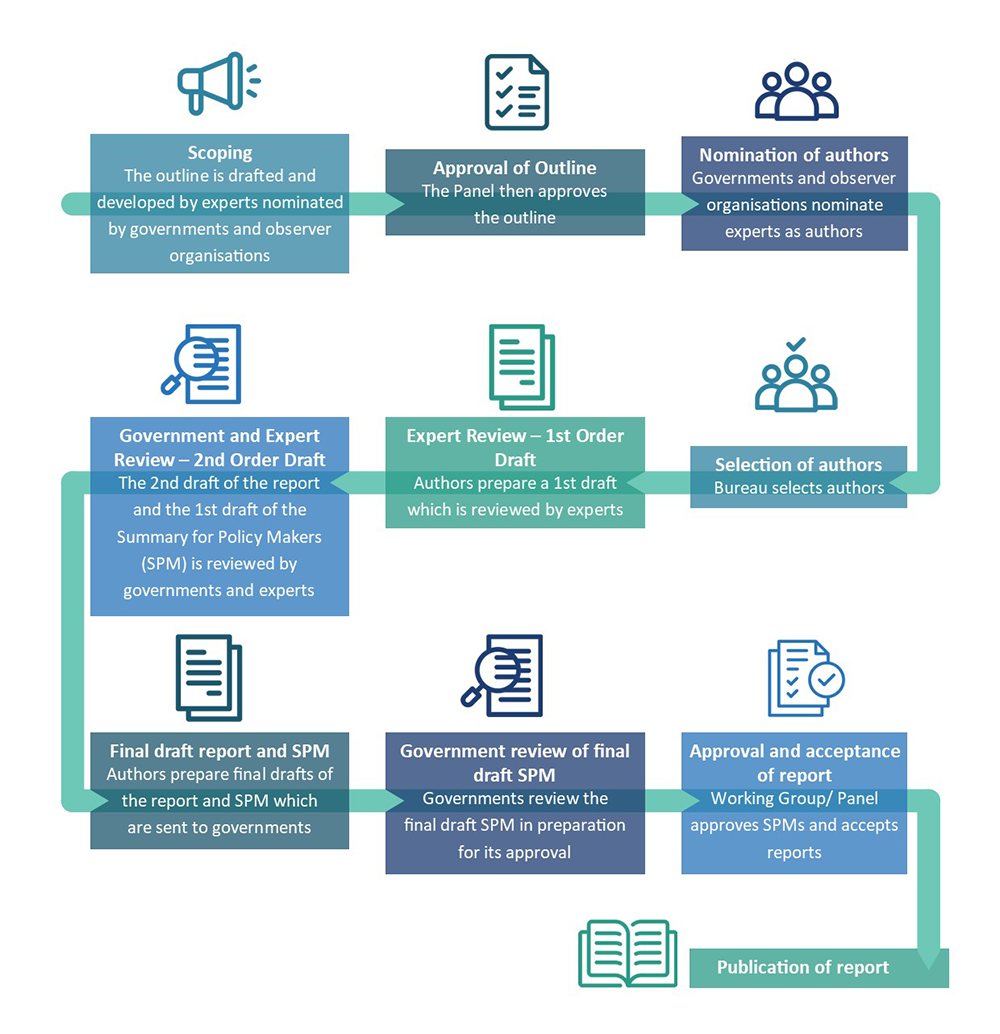Call for experts for IPCC
New Zealand experts are invited to participate in the IPCC Seventh Assessment Cycle process.
New Zealand experts are invited to participate in the IPCC Seventh Assessment Cycle process.
The Intergovernmental Panel on Climate Change (IPCC) periodically seeks nominations for authors for its reports. Existing IPCC experience is not a requirement.
There will be ongoing opportunities for experts to apply to be contributing authors or chapter scientists (scientific assistants) throughout the Seventh Assessment Cycle. Lead authors for each report will field calls for these roles when required.
There are no IPCC calls for experts currently open. We will update this page when the next call is made.
You can apply if you are an expert and would like to be considered for nomination as a Coordinating Lead Author, Lead Author or Review Editor for IPCC reports.
New Zealand will nominate experts to the IPCC Bureau, who will then assess nominees and select the final author team for each report.
Contact nz.ipccfocalpoint@mfe.govt.nz if you would like to be considered for nomination for a report when a call for authors is put out. Due to the schedule of the IPCC it will not be possible for us to accept any late responses.
New Zealand will consider applications and nominate experts to the IPCC Bureau, who will then assess nominees and select the final author team for each report.
The final author teams of each chapter, as selected by the IPCC Bureau, will aim to reflect:
New Zealand is committed to diversity and inclusion in the IPCC process. It is important diverse experts with varying knowledge are involved in the production of reports. New Zealand, alongside our like-minded countries, is advocating for the greater inclusion of Indigenous Peoples’ knowledge in reports.
The main activity of the IPCC is the preparation of reports assessing the state of knowledge of climate change. These include:
To deliver this work programme, the IPCC holds meetings of its government representatives, convening as plenary sessions of the Panel or IPCC Working Groups to approve, adopt and accept reports.
Plenary sessions of the IPCC determine the IPCC work programme, and other business including its budget and outlines of reports.
The IPCC Bureau meets regularly to provide guidance to the Panel on scientific and technical aspects of its work. The IPCC organises:
A team of authors is put together for each chapter. Governments and observer organisations nominate candidates from which the IPCC Bureau selects participants.
Depending on the scope, between 100 and 250 experts oversee a report, and many more are consulted on specific individual questions. Authors are expected to attend up to four Lead Author Meetings and in some instances, approval sessions. The IPCC requires these meetings to be held in person.
Full Assessment Reports are written periodically, roughly every six to seven years. At the beginning of each cycle cut-off dates are set for when literature has to be accepted for publication to be included in IPCC reports. This ensures assessments are as up to date as possible while still allowing author teams sufficient time to fully evaluate literature.

